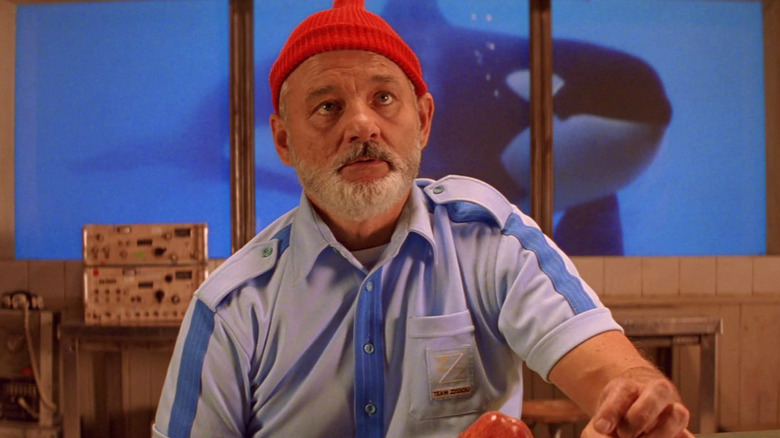To paraphrase a well-known historic father determine, I come to psychoanalyze Wes Anderson’s films, not Anderson himself. To place it mildly, Anderson’s movies are suffused with Daddy Points. From Royal Tenenbaum to Steve Zissou to the incredible Mr. Fox himself, Anderson’s filmography is suffering from problematic patriarchs. But it would be inaccurate to label these characters as wholly dangerous individuals, for every of them has a journey to take which teaches them be higher fathers, higher leaders, and most of all, higher males. Whereas the problematic patriarch is an Anderson trope as a lot as color-coded costumes and diorama-like units, the filmmaker has discovered varied methods to mess around with the archetype slightly than all the time straight painting it. As an example, “The Darjeeling Restricted” is notable in that its father determine is (allegedly) by no means seen, “The Grand Budapest Resort” incorporates a resort concierge performing instead father for his bellhop, and “The French Dispatch” substitutes a organic father for a symbolic one, within the type of {a magazine} editor.
That latter character is performed by a longstanding member of Anderson’s performing troupe, Invoice Murray, and greater than another Anderson common, it is his appearances that have a tendency to hold probably the most symbolic weight in every of the filmmaker’s films. To wit, his absence from “Asteroid Metropolis” (because of COVID-19-related scheduling) and “The Great Story of Henry Sugar” makes every movie really feel like they’re lacking a key factor greater than, say, their lack of Owen Wilson. Lastly, after a two-film absence, Murray is again within the Anderson ensemble on this month’s “The Phoenician Scheme,” albeit in a cameo function. But, as with all of Murray’s appearances in Anderson’s movies, that is no small function. For, whereas “The Phoenician Scheme” incorporates a return to an precise problematic patriarch character within the type of Benicio del Toro’s Zsa-zsa Korda, the movie makes use of Murray in a manner that each deepens the theme of this movie in addition to cleverly sums up all of his roles in Anderson’s cinema.
In Wes Anderson’s universe, Invoice Murray is God
In “The Phoenician Scheme,” Korda is proven to have visions of the afterlife as a result of quite a few assassination makes an attempt on his life, leading to at the least one, if not a number of, near-death experiences. Whether or not Korda is merely hallucinating these Bergman-meets-Powell and Pressburger visions of Heaven or is foreseeing (or remembering) his precise experiences there’s inappropriate, for these scenes serve as an instance to the character (and the viewers) the error of his methods, what he stands to lose, and so forth. In a single scene, Korda meets God, performed by Invoice Murray, a personality who’s the apotheosis (pun supposed) of each the afterlife scenes on this film in addition to Murray’s appearances in Anderson’s prior movies. To make sure, Anderson is not straight trying any Kevin Smith View Askewniverse shenanigans right here — Murray’s God is not supposed to actually be God in a shared Anderson universe. But, thematically, that is the impact the cameo has.
That is as a result of it has resonance each within the forms of characters Murray has performed for Anderson, in addition to his relationship with Anderson in actual life. All through Anderson’s movies, Murray has sometimes performed the literal problematic patriarch (with “The Life Aquatic” and “Moonrise Kingdom” the clearest examples of such), but even in his different roles of various measurement, he is had a measurable patriarchal impression on the characters and the movie itself. Clive Badger in “Improbable Mr. Fox” dispenses knowledge, Herman Blume gives Max a “cool dad” various to his actual dad in “Rushmore,” M. Ivan helps look out for Gustave in “The Grand Budapest Resort,” and so forth. No matter capability he is showing in, Murray’s presence in Anderson’s movies are likely to have ripples that stretch via the whole film.
Casting Murray as God is each cheeky and honest for Anderson
In the meantime, Wes Anderson himself considers Invoice Murray a detailed relation. As he defined in an interview for this piece about Murray’s alleged misconduct on one other movie in 2023, the actor occupies an virtually non secular area in his life:
“Invoice was such an incredible supporter of me from the very starting. I do not wish to talk about any person else’s expertise, however he is actually a part of my household. You recognize, he is my daughter’s godfather. Actually, he truly baptized her. He is the one who splashed the water.”
With all of this, who else may very well be God in Anderson’s universe however Invoice Murray? In “Phoenician,” Murray’s God provides Korda some cryptic recommendation earlier than making him play the “level at which hand is holding one thing inside it” sport, which Korda loses, after all. Murray as God is an ideal encapsulation of Anderson’s artwork: a mix of intelligence and heat, an austere exterior giving method to irreverence. Even casting Murray because the Lord is irreverent in and of itself, Anderson’s reply to Murray’s mix of bro-y sarcasm and Sphinx-like thriller, a top quality that led to Woody Harrelson’s Tallahassee fanboying over the actor in “Zombieland.” Murray will undoubtedly proceed to work with Anderson for the remainder of his days, however this function simply could be his most significant look in all of Anderson’s movies.





